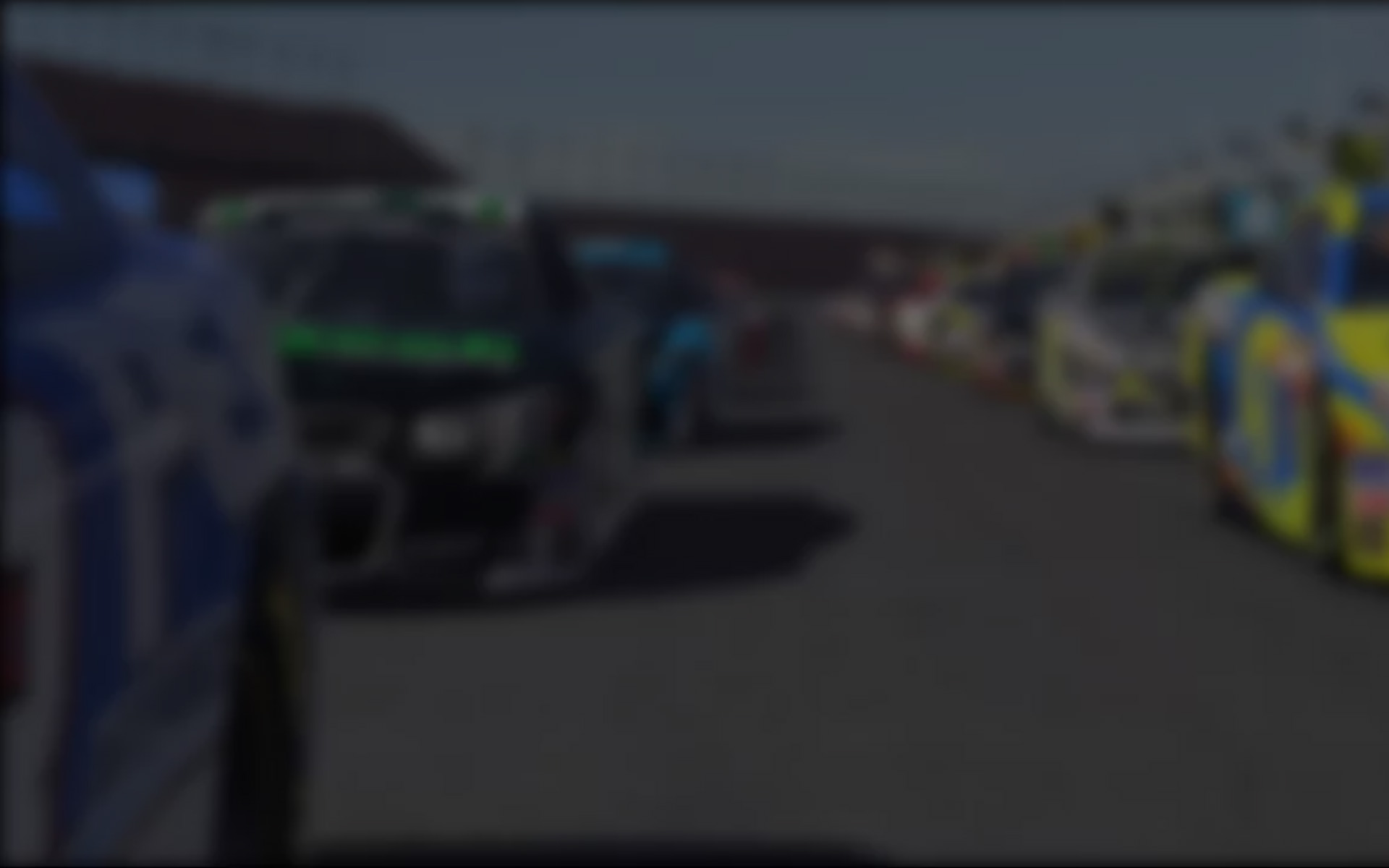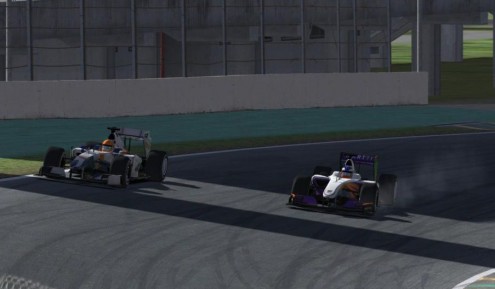
Fun Factor
December 23rd, 2014 by Jaime Baker
After my previous blog about my loss of performance midway through the last WCS season I received a massive amount of questions (final amount: three) asking what actually was the thing that was causing the troubles I had.
Well, in the end it was my brake pedal which wasn’t working too well.
The degradation of performance was so subtle that I didn’t have a clue of what it was, nor was I able to find it from data logging. To be a bit more precise, when slowly decreasing the brake pressure, the actual braking force would not decrease in the same manner, but instead, in bigger “jumps,” thus giving me a lot of issues in maintaining enough braking force without locking-up the wheels. The issue was most apparent after the update in tire model, which caused the tires to wear a lot more than previously. Having issues while braking and locking-up the wheels a lot more than they should have been really affected my lap times, especially in longer runs.
Since just saying “it was the brake” is not quite enough for a blog post, I thought a bit more about the equipment we are using, and the question which is just as old as sim-racing, which is, Does better equipment make you faster? And guess what! Look no further, the answer is here! After a long consideration during a coffee break, I came to the conclusion that yes, better equipment makes you faster! I think this revelation needs to be explained a bit, and since it is the holiday times, you could even use this blog as a scientific proof to your better half as to why you really need to invest in your sim-racing equipment. The only problem is that all this is far from scientific.
I’ll start my pseudo-scientific explanation by contradicting myself right away. So would a proper hydraulic brake system coupled with electrically driven brake rotor and actual brake calibers and pads make anyone’s lap times better when switching to them from any standard potentiometer based brake pedal? Nope! It would probably make just about anyone do slower lap times right off the bat. In fact, at least a few years ago the very top drivers in road and oval WCS could be using wheels and pedals like DFGT (or similar equipment) and doing really fast lap times really consistently. So why am I still holding on to my claim?
There are a few people who we could give an xBox controller, and tell them to operate it with chopsticks (for whatever reason) and — given enough time — they would still be beating 90% of all sim racers. Some of them could even be claiming that the chopstick+xBox method is superior to traditional controllers. I’m sure there are some who would even find this idea fascinating, but it certainly is not for everyone. We want to drive our virtual cars with controllers that are similar to the controls of a real (race) car. Of course they are more precise, and you can make smoother and more accurate control inputs; they are more realistic and thus increase the immersion factor. Overall, they are just a lot more enjoyable.

More enjoyment, means more seat time and (usually) faster laps; which leads to more enjoyment, more seat time . . .
And that is the key: Enjoyment. Of course when lapping around, you want proper gear. Some go as far as building half a chassis of a proper race car around them, right down to millimeter detail to mimic their real life counterparts. And I think it is fair to say that those who put a lot hours (and money) into their equipment really enjoy racing around the virtual race tracks with them. I dare to make a claim: When you really enjoy what you are doing, it will result in more laps, be it just races or practice time. And the amount of seat time we get is just about the only thing that can make us faster. Be it three screens, a steering wheel which has enough torque to flip you upside down if you just hold on tight enough . . . or just a nice foam pad stapled to your kitchen chair which will allow blood circulation in your legs even after 15 minutes of driving. All of those will somewhat make your sim-racing experience slightly more enjoyable.
So, that brake system which has a rotating disc for that extra realism and feel, will possibly ratchet-up the fun factor of driving even higher.
And when we like to do something, it means that usually at some point, we become better at it. In the end, none of us does this weird hobby for money; we drive because we want to and we are having fun. Some take it far too seriously, and some others could even take it a bit more seriously, but it’s enjoyment that we are after.
So, there was the explanation! As the year is almost over, I’m expecting nothing less than an Academy Award for the most useless blog post of the year. Oh, and also very happy holidays to all of you, have a good time and celebrate the new year. Because after that, it’s time to race!















































